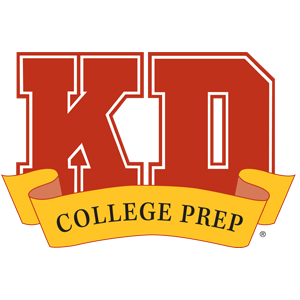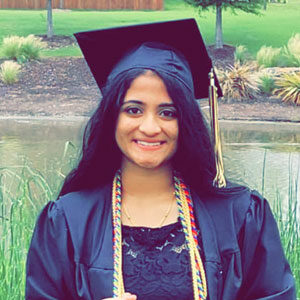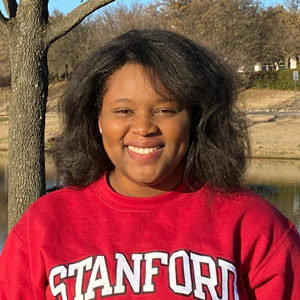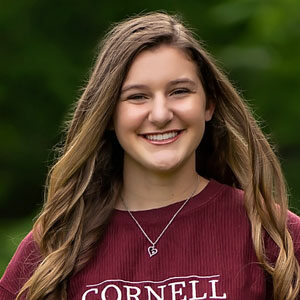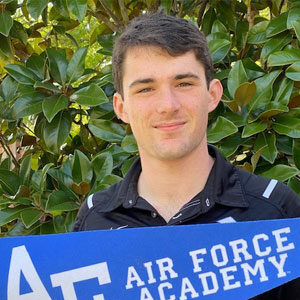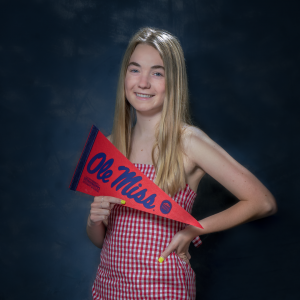College is your ticket to a successful future, but the cost is certainly not cheap. Have you ever dreamt of having your college education entirely paid for? Your dream could come true, but it will take a lot of hard work to increase your chances of winning a full-ride scholarship.
In this blog, we explain what to expect from the scholarship process and offer 10 tips for how to work toward this challenging goal.
Navigate through this article:
How Much of My College Costs Will a Scholarship Cover?
It’s not uncommon to earn a scholarship if you maintain great grades or have a unique background. Although, it’s important to understand that not all scholarships are created equal in terms of how much they cover in college costs.
Partial scholarships are the most common type of scholarship. This will cover a portion of your college tuition or other associated costs and can consist of any monetary amount. Some partial scholarships are offered once, while others can be offered each year that you attend college and still meet the requirements. Please note that with the latter it is common that you will have to maintain a certain GPA or other requirements to continue to receive this gift.
Full-tuition scholarships will cover your tuition in full for each year that you attend the college, as long as you continue to meet the specific scholarship conditions. Keep in mind that full-tuition scholarships just cover your tuition. They don’t cover the additional costs of attending college like room and board, meals, books, etc.
Full-ride scholarships are the ones that cover a student’s entire cost of attending college. They usually state that they cover the tuition, plus an additional stipend or other costs like room and board, meals, books, fees, etc. Some full-ride scholarships are one-year commitments, and students have to meet certain criteria in order to continue to receive coverage for additional years. Full-ride scholarships are rare, and they are typically offered to top-ranked athletes or students with exceptional academic or leadership credentials.
Our best advice is to look into the specifics regarding each scholarship you consider. There are many factors that go into this, and the process can vary entirely depending on a student’s circumstances.
What to Expect From the Process
In general, the application process for full-ride scholarships can be more exhaustive than the typical application process for smaller scholarship awards. In other words, the more significant the scholarship amount is, the more intensive the requirements or application process tends to be.
For example, some college scholarship programs require students to establish National Merit Finalist status to qualify. In other instances, there may be an interview involved (or even multiple interviews). If you’re an athlete, you may have to meet with the coaches or provide a verbal commitment by a specific date. Quite a lot of money is at stake, and the organizations that hand out these awards want to ensure that the funds go to students who are committed and will make the most of their opportunities.
Every organization that offers full-ride scholarships establishes its own eligibility criteria, requirements, and application process. In general, you can expect to submit the application itself, along with any required documentation pertaining to academics, test scores, athletics, community service, and so on. You’ll also likely need to submit one or more letters of reference, and you may need to sit for an interview and/or write an essay.
Like other scholarships, a full-ride scholarship can be awarded based on any number of factors, and those factors often determine the type of documentation you’ll need to submit. Here’s a look at the most common types.
Merit-Based Scholarships
Merit-based, full-ride scholarships are based on academic achievements. (They’re also referred to as academic scholarships.) To win a merit-based scholarship, you must demonstrate academic excellence across subject areas or sometimes in a particular area. Merit-based scholarship applications will request proof of your grade point average (GPA) or may require you to obtain certain test scores on the PSAT, SAT®, or ACT® tests.
Need-Based Scholarships
Need-based full-ride scholarships are based on your financial need. Even if you don’t think you’ll qualify, they can be worth checking out, just in case. Expect to provide your or your parents income documentation, such as with the FAFSA® or CSS Profile. Keep in mind that some colleges will automatically consider you for need-based scholarships when you submit the FAFSA.
Read more about how to fill out the FAFSA.
Athletic Scholarships
In addition to being a fun, healthy way to pass the time, sports can sometimes prove profitable for student athletes. Athletic full-ride scholarships may be awarded by colleges to student athletes who demonstrate consistent, exceptional athletic abilities and dedication. Be aware that you may also need to meet minimum academic requirements.
Athletic scholarships are becoming less available. There is a limited number of scholarships per team or sport. By giving partial scholarships or a combined athletic and academic award, schools can recruit more student athletes. Let’s also emphasize that some highly competitive schools, like Ivy League institutions, do not offer athletic scholarships—they only offer need-based scholarships.
Government Scholarships
State and federal governmental agencies offer some full-ride scholarships to students. Federal government scholarships are typically reserved for students who are preparing to enter a military academy, as well as to ROTC students. State-sponsored, full-ride scholarships are typically reserved for students who intend on attending specified state universities.
Community-Sponsored Scholarships
Some local civic organizations and chambers of commerce may offer full-ride scholarships. Their eligibility criteria and required documentation can vary considerably. Check with your guidance counselor about community-sponsored scholarships that may be available in your area.
Other Scholarships
The above list represents the most common types of full-ride scholarships, but there are others. For example, a company may offer private scholarships to students who plan on majoring in a field relevant to that business. Additionally, some full-ride scholarships are based on factors such as hobbies, extracurriculars, and personal heritage (e.g. Native American).
10 Tips for Applying for Full-Ride Scholarships
1. Assess your strengths and stand-out characteristics
There are millions of high school students across the U.S. during any given year, but there is only one of you. Your passions, strengths, perspectives, special talents, identity, and more all go into creating your unique self. When colleges or scholarship organizations review your application, you’ll want them to see you as you truly are: a uniquely talented individual with a bright future ahead of you.
Your first step toward increasing your chances of winning a full-ride scholarship is to do an honest assessment of your strengths, passions, special talents, and other characteristics that set you apart from the crowd. This is important for two reasons. First, identifying those aspects of yourself will enable you to better cultivate them. (If you’re crazy about artwork, then you should capitalize on your passion by pursuing art-related activities and achievements.) Second, knowing yourself better will allow you to identify the full-ride scholarship opportunities that you can pursue.
2. Start building an impressive record as early as possible
Scholarship committees typically like to award scholarships to students who have maintained an impressive body of work over multiple years. This applies not just to academics, but also extracurricular activities, community service, and leadership roles.
Extracurricular activities in particular can be the key to winning a full-ride scholarship, as some organizations award funds based on students’ non-scholarly pursuits. For example, if you get involved in your yearbook community and write for the school newspaper, you might qualify for a journalism scholarship. Similarly, being an outstanding member of Future Farmers of America (FFA) could qualify you to win scholarship money.
It’s best to follow your passions when choosing extracurricular activities. However, it’s also a good idea to research full-ride scholarship opportunities as soon as you start high school so you can make informed decisions about your activities. Across all of your extracurriculars, look for opportunities to step into leadership roles (e.g. serving as President of the Chess Club). Some full-ride scholarships take demonstrated leadership experience into consideration.
In addition to extracurriculars, you’ll want to demonstrate a sustained track record of community service. Look for at least one or two community service opportunities each year. Serving as a volunteer at the same organization year after year is also a good idea, as it demonstrates your commitment.
3. Develop relationships with mentors, including teachers
Your parents or guardians may be your primary source of guidance, but it’s also important to cultivate relationships with mentors outside your household. Teachers, sports coaches, supervisors at volunteer jobs, and heads of local civic organizations all have the potential to serve as your mentors.
Some mentorships are formally established, such as through a mentorship program. Others are informal and develop naturally over time. Either will serve you well. Not only will you get some invaluable advice from your mentors, but you’ll also be able to ask them for letters of recommendation for your scholarship applications.
How does a high school student go about cultivating a mentor/mentee relationship? It’s really not as hard as it might sound. For example, let’s say your passion is creative writing and your English teacher has already encouraged you to continue pursuing it. Ask your teacher if you can schedule some time to have a chat after school. You can ask for feedback on a particular piece of writing, request advice on related career paths, or simply talk about how much you enjoyed the last fiction book that your teacher assigned to the class.
Continue developing a good rapport with your teacher over time. By the time you’re ready to apply to a full-ride scholarship, your mentor will know you so well that they will be able to write a detailed letter of recommendation for you. Be sure to politely request a letter of recommendation a few months before the application deadline.
4. Work on problem areas to prevent your grades from slipping.
If one of your strengths is academics, then it’s likely you’ll want to apply for a few merit-based, full-ride scholarships. Although each scholarship committee establishes their own criteria, in general, you’ll want to be in the top 10% of your class.
Even if you feel that an athletic or other type of scholarship suits you better, it’s still important to keep your grades up. Scholarship committees will often consider academic performance as one factor in their decision, even if it’s not the predominant factor.
By this point in your academic career, you probably already have a good idea of where your problem areas lie. Perhaps you struggle with history or math, for example. Pay particular attention in those classes, take copious notes, and ask the teacher for extra help after school. You could also explore tutoring options and form a study group with your friends.
5. Enroll in an SAT/ACT test prep program
You can enroll in an SAT/ACT test prep program as early as 9th grade, or even as early as 7th grade if you choose the Advanced Start test prep program from KD College Prep. Getting a good score on the SAT and ACT tests is important not only for college admissions, but also because it may help you obtain scholarship money. Scholarship committees may take a look at your scores in addition to your GPA and transcripts.
6. Take the PSAT/NMSQT test in 11th grade
Even if you decide to take the PSAT test earlier than 11th grade, you’ll definitely want to take the PSAT/NMSQT test this year, as well. When you take the test in 11th grade, you’ll be entered into the National Merit® Scholarship Program. In addition to potentially qualifying for National Merit awards, some schools offer full-ride scholarships to students who earn Finalist status. Other schools, such as the University of Texas at Dallas and the University of Alabama, offer full-tuition scholarships to National Merit Finalists.
7. Use your summer breaks constructively
Summer breaks aren’t just fun. They’re also opportunities to make your future brighter. It can be tough to fit in everything you want to do during the school year, so use your summer breaks constructively. Take an enrichment class at the local library, perform community service, and get a part-time job that aligns with your career interests. All of these endeavors will look impressive on your scholarship applications.
Another constructive way to spend a summer break is to do something out of the ordinary. Talk to your parents about going on an eco-volunteer trip instead of the usual family vacation (volunteer to work on forest conservation projects in Madagascar or to rescue sea turtles in Australia or Costa Rica). Other ideas include learning how to rock climb, starting your own small business, or volunteering to work in a lab at a local college.
Doing something out of the ordinary can serve as great fodder for your scholarship application essays.
8. Follow the application instructions and plan ahead
Now that you’ve worked on creating an impressive body of work as a high school student, it’s time to submit the applications. Remember that each scholarship committee will request different documentation and establish their own processes for the application. Read the instructions carefully and follow them precisely.
It’s also important to plan ahead. You should know well in advance exactly which full-ride scholarships you’ll apply for and what sort of documentation they need. It can take some time to arrange all of the necessary paperwork (e.g. requesting letters of recommendation), so plan ahead.
9. Write a unique essay for each application
You should never copy and paste scholarship application essays. Committee members may be able to tell if your essay was originally written for a different application, with some minor tweaks made here and there. Always write a unique essay for each application in accordance with that scholarship’s essay prompt.
10. Practice your interview skills
Some full-ride scholarships require an interview. It’s a good idea to practice your interviewing skills with a parent, guidance counselor, or similar adult. You’ll want your unique personality to shine, but you’ll also want to be careful to avoid overly informal language. Be prepared to answer questions such as:
- Why do you feel you’re a good candidate for this scholarship?
- What do you plan to study?
- What are your plans after college?
There will likely be some scholarship-specific questions, as well. For instance, if it’s a scholarship related to creative writing, you may be asked to discuss some of your favorite authors.
What Does a Full-Ride Scholarship Consist Of?
A full-ride scholarship is intended to cover all of your college expenses. These include tuition, room and board, books, and fees. Sometimes, full-ride scholarships even offer some coverage for living expenses.
What Are Some Factors That a Full-Ride Scholarship Can Be Based On?
A full-ride scholarship may be based on almost anything. They are commonly based on factors such as the following:
- Academics (GPA, test scores, etc.)
- Sports/Extracurriculars
- Community Service
- Leadership
- Financial Need
- City/County/State Residency
- Heritage
- Military Commitments
How Common Is a Full Ride?
Full-ride scholarships are highly competitive. From 2015 to 2016, one report demonstrated that only about 0.2% of students received $25,000 or more in scholarship aid. Only about 2% of student athletes receive scholarships, and only a small percentage of those scholarships are full ride. Although it may be difficult to win one, it’s not impossible. Don’t let the odds discourage you from trying your best to land a full-ride scholarship.
Need Help Preparing For College?
Remember that PSAT, SAT, and ACT test scores can influence your chances of obtaining scholarship money, and test prep programs just might make all the difference for your scores. College counseling can also help guide you through the entire college admissions process. Contact KD College Prep today to request a free consultation to learn more about our programs.














